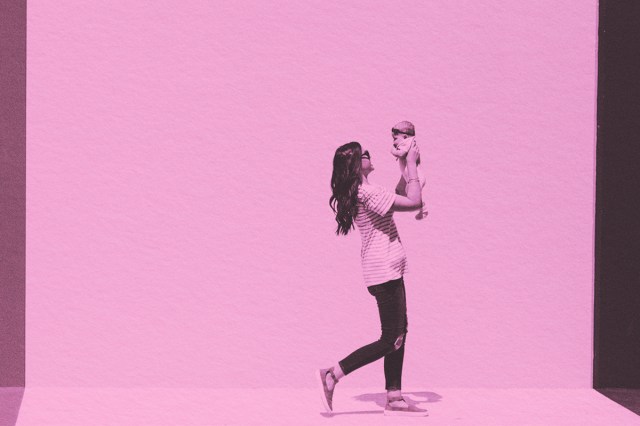
A baby’s first word is a major milestone in their development, no matter how short or long the word may be. That being said, if your baby suddenly says, “Worcestershire,” or “açai,” you have a genius on your hands. Most kids tend to say their first coherent words around the age of 1, and then begin to form complete sentences within the following year. Often speech begins with the simple words “mama” and “dada” — or variations thereof — and there’s a few reasons for that.
First off, the repetitive nature of the syllables makes them catchy and easy to repeat, and babies hear these terms more frequently than “hocus-pocus” or “flip-flop,” for example. In linguistic terms, the word “mama” starts with a labial consonant (“m”), which utilizes both lips in a similar fashion to how a baby would breastfeed or bottle-feed. This familiar mouth construction makes it much easier for babies to say the word “mama,” as they already know how to make that shape with their lips.
The word “dada,” on the other hand, begins with a dental consonant, a term describing how the tongue pushes against the upper teeth to make these sounds. Because of this, it might come after “mama.” However, saying “dada” doesn’t require learning how to push air out through the nose, which is a skill that takes time for babies to develop. Some babies may say “mama” and “dada” because they associate the sounds with food or comfort, not necessarily because they’re a direct reference to mom and dad.
If a baby hasn’t started babbling with “mama” or “dada,” another short and/or repetitive term such as “uh oh” or the ubiquitous “no” might be coming soon. Studies show that learning and using repetitive versions of words (“night-night” and “choo-choo,” for example) at a young age may actually help children in vocabulary learning. This makes words like “mama” and “dada” excellent options if you’re trying to encourage your child to say their first word.















